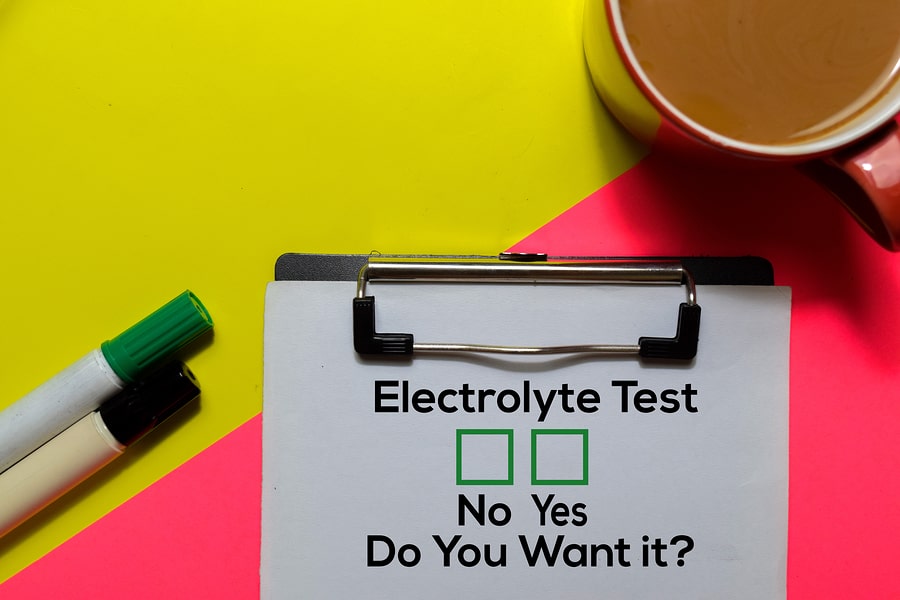Electrolyte Imbalance – Do You Know How to Spot the Signs?
Posted by: Tampa Cardio
On: February 24, 2020

Electrolytes are essential minerals found in the body that help with muscle, nerve, and brain function. These minerals, which include: Calcium, Potassium, Magnesium, Phosphate, and Sodium Chloride, have to be kept in balance. Too much or too few of any one mineral can have a detrimental effect on the body.
While some electrolytes balance naturally with the body’s own function most of them come from diet or supplementation.
Causes of Electrolyte Imbalances
Electrolytes are always in a state of flux in the body. Any time water leaves the body, be it sweat, urine, crying, or throwing up, electrolytes leave with it. Any time you are at risk for dehydration it will go hand in hand with this type of imbalance. Excessively hot weather, exercise, or illness may bring it about.
Medical conditions can also result in electrolyte imbalances. These include but aren’t limited to alcoholism, eating disorders, kidney disease, diabetes, congestive heart failure, thyroid disorders, injury, or trauma.
Symptoms
Symptoms of an electrolyte imbalance vary depending on which mineral is out of balance. There are a few common symptoms that are shared amongst all of them:
- Fatigue or lethargy
- Dark urine
- Irregular heartbeat
- Seizures and spasms
- Nausea
- Digestive issues
- Cramps
- Muscle weakness
- Pain
- Mood swings
- Headache
Mild disorders may present no symptoms at all and are only detected during routine blood tests. If you experience severe symptoms or signs that you dehydrated, such as poor skin elasticity, low blood pressure, confusion, or loss of consciousness, seek emergency medical care immediately as an electrolyte imbalance caused by dehydration or shock can be life-threatening.
The Treatment
Short term electrolyte imbalances can be addressed by using supplements or administering IV fluids to rehydrate the body and restore depleted minerals. IV fluids may also be used on top of certain oral medications or hemodialysis, to flush the body of any excess minerals that are present or to flush any excess waste from the blood.
Your doctor will also want to address the long term effects, which means reviewing your diet and possibly referring you to a nutritionist. You will require a diet that is abundant in fruits and vegetables, especially things like bananas, tomatoes, avocados, and sweet potatoes.
If you are unable to get the electrolytes that you need from food sources, additional supplements may be prescribed.
If you are in the Tampa area and are concerned about a potential electrolyte disorder or would just like general advice on keeping a balanced diet and healthy lifestyle, make an appointment with the on-site nutritionist available to you at Tampa Cardiovascular Associates by calling (813) 975-2800 today. www.tampacardio.com.
Posted by: Tampa Cardio
On: 24/02/2020
